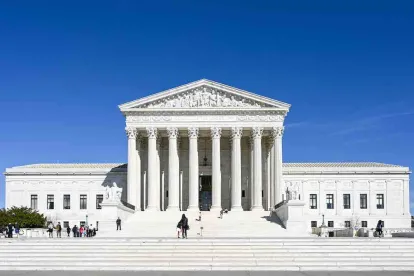The US Supreme Court – once again – sided with advocates of the First Amendment in a decision striking an unconstitutional limit on campaign speech.
In a 6-3 ruling, the Supreme Court struck a $250,000 limit on the amount of money candidates could raise after the election to repay themselves for personal loans they made to their campaigns. Chief Justice John Roberts said the provision “burdens candidates who wish to make expenditures on behalf of their own candidacy through personal loans” and violates the First Amendment rights of candidates to engage in political speech. The law “burdens core political speech without proper justification” - a rationale that is consistent with recent decisions invalidating limits, prohibitions, and disclosure provisions affecting campaigns and non-profits.
The majority opinion stated that any restriction on core political speech must start with a proper governmental justification and be tailored to further that permissible governmental interest. If not, the law will be struck – just as the Supreme Court did last year for non-profits in APF v. Bonta. In that case, the Court voided California’s requirement that certain non-profit organizations had to disclose their private donors - the Court found the state could not demonstrate sufficient evidence of a governmental interest that the disclosure requirement could support.
The same analysis is applied here. When the government is trying to defend a restriction on speech, it must do more than “simply posit the existence of the disease sought to be cured” -- it must instead point to “record evidence or legislative findings” demonstrating the need to address a special problem by restricting speech. As in the APF case, the record here was absent of sufficient evidence, requiring the statute to fall.
The Justice Department claimed the loan repayment restriction was needed to “prevent corruption and the appearance of corruption.” But the Court’s conservative majority viewed that argument “with a measure of skepticism.” The Chief Justice wrote: “the government has not shown the repayment restriction furthers a permissible anticorruption goal” instead, it furthers “the impermissible objective of simply limiting the amount of money in politics.”
Justices Kagan, Breyer, and Sotomayor, dissented with more of a policy-oriented opinion stating the removal of this ban “greenlights all the sordid bargains Congress thought right to stop” and “fuels non-public-serving, self-interested governance, injures the integrity, both actual and apparent, of the political process.”
The restriction at issue is one of the last surviving provisions of the much-criticized McCain-Feingold Campaign Finance Reform Act. In finding the limit could not be justified to deter corruption, Chief Justice Roberts added the law was more likely designed to benefit incumbents over challengers - since new candidates often have to loan money to their campaigns and can find it more difficult to attract donations. The case name is Federal Election Commission v. Ted Cruz for Senate, 596 U. S. (2022).



 />i
/>i

